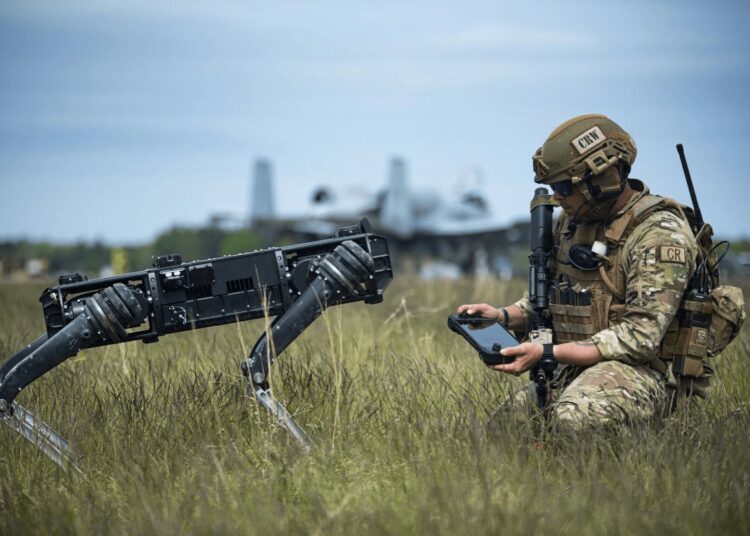The Next Generation of Warfare is here, and it is defined by cutting-edge technology and innovative strategies. From autonomous systems to cyber warfare, biotechnology, artificial intelligence, and hypersonic weapons, the military tech trends of today are reshaping the battlefield in unprecedented ways. Autonomous systems operate without direct human input, revolutionizing military operations with precision and efficiency. Cyber warfare presents new threats and defenses in the digital age, while biotechnology offers possibilities for super-soldiers and advanced medical treatments. Artificial intelligence enhances military decision-making and control, but ethical concerns persist. Hypersonic weapons bring high-speed precision strikes to the forefront. As technology evolves rapidly, military forces worldwide must adapt to stay ahead and maintain a strategic advantage. The future of warfare will be defined by innovation and ingenuity.
The Next Generation of Warfare: A Look at the Latest Military Tech Trends
Warfare has always been an ever-evolving field, with advancements in technology constantly changing the way battles are fought. From the invention of gunpowder to the development of nuclear weapons, military technology has been at the forefront of innovation for centuries. In recent years, the pace of technological advancement in the military sector has only accelerated, ushering in a new era of warfare that is defined by cutting-edge tech and innovative strategies.
Autonomous Systems
One of the most significant trends in military technology is the development of autonomous systems. These systems, which can operate without direct human input, are increasingly being used in various military applications, from surveillance drones to unmanned ground vehicles. The use of autonomous systems in warfare has the potential to revolutionize how battles are fought, allowing for more precise and efficient operations while minimizing the risk to human soldiers.
Cyber Warfare
Another key trend in modern warfare is the rise of cyber warfare. As countries become more reliant on digital technology for critical infrastructure and communication, the potential for cyber attacks to disrupt or disable military operations has grown exponentially. Governments around the world are investing heavily in developing cyber warfare capabilities, including offensive tools to target enemy networks and defensive measures to protect their own.
Biotechnology
Advancements in biotechnology are also changing the landscape of warfare. From developing enhanced soldiers with genetic modifications to creating new medical treatments for battlefield injuries, the intersection of biology and technology is opening up new possibilities for military applications. Biotechnology could ultimately lead to the creation of super-soldiers with enhanced physical and cognitive abilities, allowing for greater effectiveness on the battlefield.
Artificial Intelligence
Artificial intelligence (AI) is another technology that is reshaping the future of warfare. AI has the potential to revolutionize military decision-making, enabling faster and more accurate analysis of complex data and scenarios. AI-powered systems can also be used to autonomously control vehicles and weapons, increasing the speed and precision of military operations. However, concerns about the ethical implications of AI in warfare, such as the potential for autonomous weapons to act independently of human control, have led to calls for greater oversight and regulation of AI development in the military.
Hypersonic Weapons
One of the most talked-about military tech trends in recent years is the development of hypersonic weapons. These weapons, which can travel at speeds of Mach 5 or higher, pose a new challenge for defense systems due to their high maneuverability and speed. Hypersonic weapons have the potential to change the dynamics of warfare by reducing the warning time for enemy attacks and enabling precision strikes on time-sensitive targets.
Conclusion
The next generation of warfare is shaping up to be unlike anything we have seen before, with advancements in autonomous systems, cyber warfare, biotechnology, artificial intelligence, and hypersonic weapons changing the way battles are fought. As technology continues to evolve at a rapid pace, it will be crucial for military forces around the world to adapt and stay ahead of the curve in order to maintain a strategic advantage on the battlefield. Only time will tell what new developments will emerge in the realm of military technology, but one thing is certain – the future of warfare will be defined by innovation and ingenuity.












